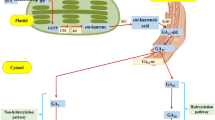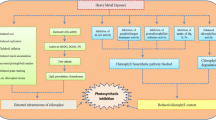Abstract.
In this work we examined the elicitor-like effects of low-energy ultrasound (US) on plant cells with respect to the induction of plant defense responses and secondary metabolite production. Panax ginseng cells in suspension culture were exposed to US (power ≤0.1 W/cm3 at 38.5 kHz fixed frequency) for short periods of time (30 s–6 min). Two early events in plant defense metabolism and signal transduction pathways, the increased cross-membrane ion fluxes (Ca2+ influx and K+ efflux/H+ influx) and the production of active oxygen species (AOS), were detected in sonicated cultures within 2 min after US exposure. These responses could be induced with small doses of US energy, 0.6–0.8 J/cm3, and enhanced by increasing US energy within a non-inhibitory range. US treatment stimulated the synthesis of useful secondary metabolites, saponins of ginseng cells, without causing any net loss of the biomass yield of ginseng cell cultures. These results suggest that US can act as a potent abiotic elicitor to induce the defense responses of plant cells and to stimulate secondary metabolite production in plant cell cultures.
Similar content being viewed by others
Author information
Authors and Affiliations
Additional information
Electronic Publication
Rights and permissions
About this article
Cite this article
Wu, .J., Lin, .L. Elicitor-like effects of low-energy ultrasound on plant (Panax ginseng) cells: induction of plant defense responses and secondary metabolite production. Appl Microbiol Biotechnol 59, 51–57 (2002). https://doi.org/10.1007/s00253-002-0971-2
Received:
Revised:
Accepted:
Issue Date:
DOI: https://doi.org/10.1007/s00253-002-0971-2




